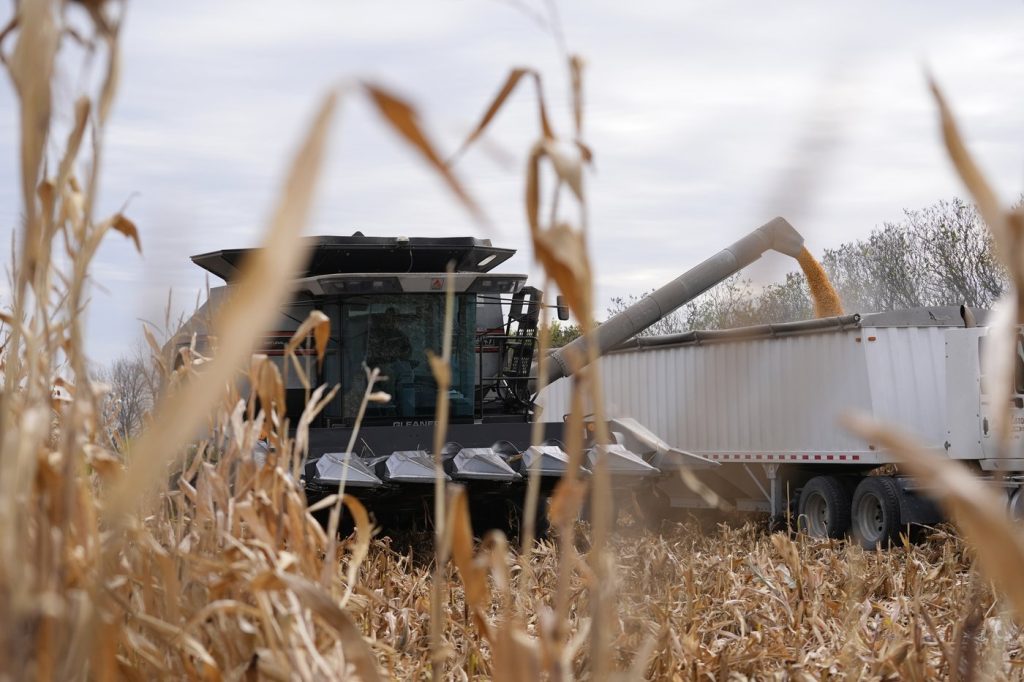Farmers and meat producers across the United States are bracing for significant financial impacts due to newly imposed tariffs on imports from Mexico, Canada, and China. These tariffs are expected to lead to billions of dollars in losses if they remain in place for an extended period, with consumers likely to see increases in the prices of produce and ground beef. While some impacts may not be immediately felt, the ripple effects could extend to future harvests, and certain products might even become cheaper for consumers in the short term if exports decline.
The cost of corn, wheat, and soybeans constitutes a relatively small portion of the overall price for many products, providing a nuanced picture of the situation. President Donald Trump could potentially offer financial aid to farmers, similar to the support provided during the trade war with China in his first term, to mitigate financial losses from the tariffs.
In his address to Congress, Trump emphasized the need to protect American farmers, inviting them to "bear with me again." However, he did not mention specific additional aid. If tariffs lead to decreased confidence among farmers to invest in expensive machinery, and if consumers cut back on spending due to rising grocery prices, the economy could face a downturn, potentially triggering a recession. Concerns are already rising regarding inflation, exemplified by skyrocketing egg prices tied to a bird flu outbreak.
According to Glynn Tonsor, an agricultural economist at Kansas State University, consumer behavior significantly influences economic strength over time. He warns that the tariffs may hinder spending across various sectors, impacting overall economic activity. While some farmers are proactively stocking up on machinery and supplies, the challenge remains that they cannot easily purchase all necessary fertilizers in advance. Consumers, too, face limitations in stockpiling perishable items such as avocados and ground beef.
Regarding pricing, the immediate effects are becoming apparent, with corn and soybean prices dropping by approximately 10% since the announcement of the tariffs. Joe Janzen, an agricultural economist at the University of Illinois, asserts that this decline has nearly eliminated any profitability for these crops. He criticized Trump's assertion that farmers could sell more products domestically as "tone deaf," suggesting a lack of domestic market capacity for the quantities normally exported.
Further complicating matters, as crop prices fall, farmers might experience rising fertilizer costs, particularly since 85% of the potash used in American fertilizers is sourced from Canada, which could drive expenses higher. Minnesota farmer Danny Lundell highlighted the critical need for potash and the effects on farmers of all sizes.
Shifting focus to the meat industry, a substantial amount of lean beef imported into the United States—essential for blending with American-produced fattier beef for hamburger—will become costlier, given that nearly half of this imports originate from Canada and Mexico. This price surge is expected to become noticeable in grocery stores within six to eight weeks. The U.S. exported over $1.8 billion in chicken and $8.4 billion in red meat to Mexico, Canada, and China, with economists projecting a potential 10% drop in exports as a consequence of tariffs.
Farmers may seek to increase domestic sales due to export limitations but could have to discount prices. While producers of steaks and bacon may experience stable demand, prices for hams could fall due to diminished demand from Mexico, a key buyer. Specialty cuts of meat, primarily exported, might see a significant drop in prices.
Concerns among farmers are palpable. Steve Kuiper of the Iowa Corn Growers Association indicates a decrease in consumer purchases, adversely affecting major agricultural equipment suppliers like John Deere. Katy Rogers, who manages an organic farm in Indiana, acted preemptively to stock up on supplies in anticipation of price hikes.
Looking ahead, the lasting impact of the tariffs remains unclear. While Trump can mitigate farmers' losses with aid payments, the scale of future assistance is uncertain, particularly as he navigates broader budget cuts within the federal government. Minnesota Democratic Gov. Tim Walz warned that tariffs could damage trading relationships, prompting buyers in China, Mexico, and Canada to seek alternatives. Trade experts caution that while tariffs may temporarily inflate American consumer prices, such actions are not sustainable and could have long-term repercussions against the interests of U.S. producers.










